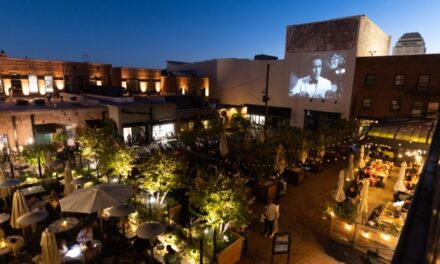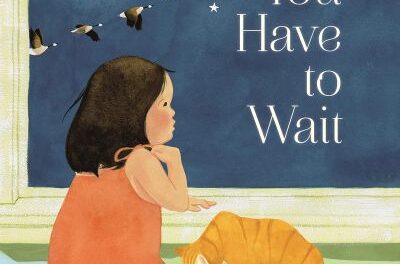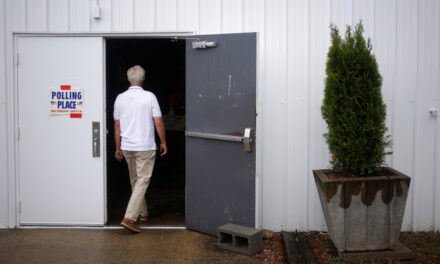MALIBU, Calif. — Gerry Turner slipped on his tuxedo and hearing aids, then went out to meet the next love of his life.
Nancy, a 61-year-old interior designer, showed off her hearing aids: “I, too, wear a little ear candy.”
An elderly woman inched across the driveway using a walker. “Do you need help?” Gerry asked. Leslie tossed the walker, tearaway nightgown and gray wig to reveal a strapless mini dress: “Do I look like I need help?” teased the 64-year-old fitness instructor.
And Faith roared up on a motorcycle. “I’m proof you can live fast and not die young,” said the 61-year-old high school teacher. “If you leave here with me, it will be the ride of your life.”
And so began “The Golden Bachelor”: 22 women — ranging from 60 to 75 years old — vying for the love of the 72-year-old widower. ABC’s wildly popular dating franchise is having a senior moment, in the best sense of the term.
Gerry is tall, handsome and successful, which means that in real life he could be dating people three decades younger, but here the love interests are age-appropriate. TV shows centered on older women do pop up — “Grace and Frankie,” “And Just Like That …” — but can anyone remember one on a major network since “The Golden Girls” debuted 38 years ago? (Back then, the show’s idea of “older” was women in their 50s, which three of the four main characters were.)
The original “Bachelor” and all the spinoffs feature hot 20-somethings competing for the final rose and the ginormous Neil Lane engagement ring — along with tears, backstabbing and the notoriously seductive Fantasy Suites. This version, which premiered Thursday night, is different. Obviously because of the age of the bachelor himself and senior citizens (such a quaint term, isn’t it?) as romantic, sexual and life partners. But more importantly, the show focuses less on competition and more on the rich life histories these baby boomers bring to love, loss and letting go. These women are average Americans in their 60s and 70s looking for a fling, a boyfriend, maybe more — not looking to become Instagram stars. (They’re here for the right reasons.) And they are not going gently into that good night — they’re looking to raise a little hell and shatter stereotypes about aging.
“This is not an age group that’s necessarily highlighted or celebrated in mainstream media,” said showrunner Claire Freeland. “Women are still vibrant, women are still interested in having a connection or a companion or a relationship, in doing adventurous things and having romance in their lives, even as they get older. … People are still interested in love no matter what age they are.”
There is, of course, a huge difference between love in your 20s and in your 60s, the difference between starting a life together and fitting romance into an already established world with children, grandchildren, longtime friends, work, hobbies and more. According to the 2020 U.S. Census, there are 30 million women 65 or older; 53 percent are widowed, divorced or never married.
Viewers have been asking for an older version of “The Bachelor” for years; the pandemic postponed any filming until this year. More than 30,000 women applied; producers narrowed the field to a small group of hopeless romantics who believe in second chances, destiny and pickleball.
Theresa, a financial services professional, celebrated her 70th birthday while filming the first episode. She introduced herself to the Golden Bachelor by opening a black robe to show off her “birthday suit” — a nude body stocking. Later in the episode, Gerry gave her a birthday cupcake and took a bite; she kissed off the icing on his lips: “It’s been forever since I kissed a guy, and it was incredible. It was just so good.”
Beneath the ball gowns, bravado and Botox (good genes don’t work miracles, people), what we’re really talking about is what it means to be an older woman in 2023.
America’s 71 million baby boomers bring their obsession with youth and their formidable net worth to redefining aging. They’re convinced that they look so much younger than their parents and grandparents did at the same age — and that may be true. They drink less, smoke less, exercise more and aren’t embarrassed by hair dye, facial fillers or blue jeans. Sixty is the new 40, at least in their dreams.
“I don’t watch anything with old people on it because I don’t want to get old,” 65-year-old April said in a promotional video introducing the contestants. April, a glamorous blond therapist, seems like a drama queen. Just saying.
The paradox of the show: Age is just a number, and it’s also a harsh reality. The 22 contestants have already lived full lives and are in the last chapters of their stories, with two or three decades left if they’re lucky. But that gives them years of experience, more confidence and not much time to worry what other people think.
“No one goes through life unscathed; at any moment that grenade will crash through the window for any of us,” said one of the showrunners, Bennett Graebner. “It’s given a whole different perspective on life, hearing the stories that these women have been through. And there’s a whole new depth to the show because of that.”
Some of the contestants are widowed after long, happy marriages. Some are divorced, and some never married. During a visit to a location shoot in Malibu, Calif., last month, a few explained their reasons for signing up: They want a partner, they want love, they want fun.
“When we’re young, we give up everything,” said the twice-divorced Susan, 66. “We take care of them and do their laundry, cook and clean and be the perfect little wife. Now, in my 60s, it’s about being equal.”
“When I was younger, love for me was more storybook, happily ever after,” said the never-married “60 years young” Natascha. “I didn’t know that I needed tools like emotional intelligence, communication, compromise. Now that I’m older, I’m more patient.”
Kathy, 70, was widowed when her husband of almost 45 years took his own life. Now she’s looking for a relationship not based on work or kids or even shared history but “making someone happy and having someone who makes me happy. Being with each other because we choose to be — not because we have to, but because we genuinely want to be together. That is a different kind of love.”
One common theme: The desire to be with someone, not take care of someone. After decades with husbands, raising children and staying up all night making cupcakes for the bake sale, these women are ready for some serious ‘me’ time. But the guilt can be crippling. During filming, the daughter of one of the women had a health issue and begged her mother to come home. The contestant decided she needed to leave; the other women supported her decision.
“One thing that we kept hearing from the women is that they think they don’t feel seen at this age,” Graebner says. “They don’t feel seen in their private lives or their public lives. Instead, they’re really only seen as people who can serve a purpose to others: They’re caretakers, they’re grandmothers, they’re mothers. But they’re not seen for just themselves. That was eye-opening.”
The drama of this season comes not from catfights (okay, there are a few); it comes from the emotional backstories of these women. But it’s useful to remember that this is a reality show, which means the contestants are upbeat, optimistic, adventurous and good sports. They are also good-looking: fit, sexy but not trying too hard to look too young. There are a few with gray and silver hair but more lifelong blonds and brunettes. Wrinkles are visible, but not too many frown lines. These women are either very happy or have discovered the healing powers of a discreet nip and tuck.
More importantly, they all have busy, successful lives and should — if they’re being honest — address questions on the show their younger counterparts haven’t encountered on previous seasons. Can this be love without marriage? Where would they live? Could it work long-distance? How will the children and grandchildren fit into all this? How would they treat money and inheritances? What about health issues? Or sex? Let’s just say getting naked at 70 is more complicated than at 30.
“They’re not looking to buy their first home and start a family and figure out their careers,” said showrunner Jason Ehrlich. “They have fully realized lives that they have been living, and they’re looking to really have a companion to live out — as Gerry would say — the fourth quarter of their life with. And, as Gerry would also say, that’s the best quarter.”
As bachelors go, Gerry seems like a Midwestern gem. He married his high school sweetheart at 22, lived happily for 43 years until she died after a brief illness when he was 65. He dated a bit but didn’t find love. The retired restaurateur from Indiana applied to become the first senior bachelor after his two daughters and two granddaughters urged him.
“When you’re 22 — and my wife was 21 — you’re just growing up together, learning to be adults,” he told The Washington Post during the location shoot. Now dating is more complicated and more simple. “You see time passing faster. You go, ‘I’m going to put myself out there.’” Before this show, there were some “awkward” dating lessons learned. (“Don’t change your will.”) He would like to get married again, and he’s willing to move from Indiana if that’s what it takes.
Gerry loves golf and pickleball, something he revealed in his promotional videos. It will come as no surprise that a number of the women say they, too, adore pickleball — a ringing endorsement of America’s favorite new pastime or a shameless fib to play ball with the bachelor.
Because of the Hollywood writers strike, the unscripted reality series was rushed into production for a fall debut. Like the previous versions, there are one-on-one dates, groups dates and elimination rose ceremonies.
Due to the intense romantic bubble that everyone lives in, the ability to get to know any of the woman on a deep level is almost nonexistent — and the lasting success of any “Bachelor” relationship is iffy at best. And “The Golden Bachelor” was even more of a whirlwind; most “Bachelor” seasons take eight to 10 weeks to shoot, while this one was filmed in four weeks in late summer. In an interview last week on the “Bachelor Nation” podcast, Gerry said the experience was at times very confusing. “There’s a need to separate feelings of general affection and admiration for some of the women from the true connection you would have with a life partner.” He said he used the Fantasy Suites overnights for intimate conversations, not sex: “In your 20s and 30s, you might have a different priority about the Fantasy Suite, whereas in your 70s it’s more about an emotional connection.”
Faith, who rode into the premiere on her motorcycle and then serenaded Gerry, received the season’s First Impression rose. Why? “You’re making me feel very special,” he told her. Faith tearfully accepted: “To me, this rose represents hope.”
The hope that this man and these women get what they want from this experience. And that America gets a new look — and maybe a new respect — for romance at any age.
“When ‘The Bachelor’ first started 20 years ago, we were really hoping that the show would inspire the viewers to believe in love again,” Graebner says. “I think that still holds true. It just hits a little different.




